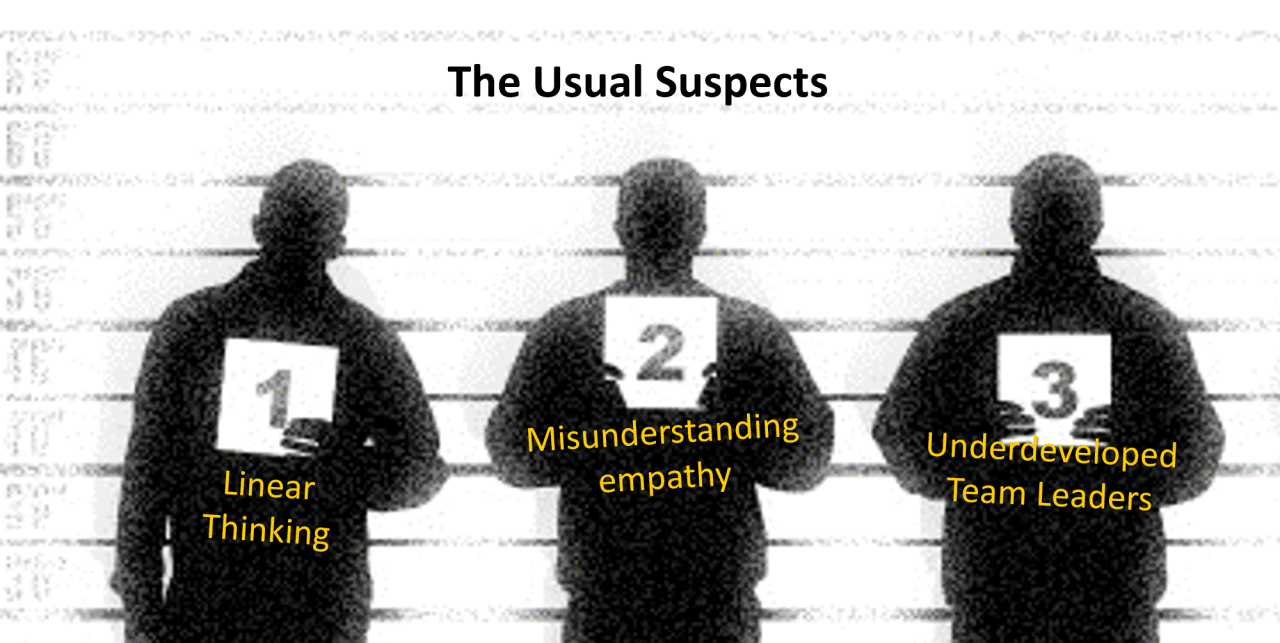Genuine conversations are the key to successful vulnerable customer conversations.
As Collections and Vulnerability Training Specialists, before we even look at collections, vulnerability and hardship training, we focus on effective and genuine vulnerable customer conversations. Because until you can effectively engage with people you can’t begin to better identify, assist and support your most vulnerable customers. In our 11 years of experience rolling out this training to a wide range of organisations across the Banking, Energy, Water, Government, Insurance and Commercial sectors we have identified 3 key blockers to having genuine conversations.
Let’s take a look at what they are……….
Does the tail wag the dog in your organisation?
Collections teams work within a highly regulated environment and a strong focus on compliance is required both to protect the customer and the organisation. However, so many frontlines, vulnerable customer conversations are governed by back-office legal and compliance departments who are often removed from the daily interactions with customers. This linear thinking is a classic case of the tail wagging the dog and this is often how it plays out…..
Overly scripted responses become too transactional and are counterproductive to having a genuine conversation and to better support customers that may be vulnerable or in hardship. Many of you will be familiar with the comedy sketch from Little Britain “Computer says no”! Unfortunately, real-life examples of this are everywhere: “The policy says……” “The system won’t allow it….” “They are the rules….” This language is hard to hear as a customer, it’s dismissive and impersonal and results in a poor customer experience.
If staff aren’t empowered and upskilled to take ownership of the vulnerable customer conversations within a flexible call model, then their hands are tied trying to reach a better outcome for the customer.
No time or inclination by staff to listen – If staff are overly governed by strict KPI’s around average handling time or by restrictive scripting there is no room for them to be able to actively listen and respond to a customer to effectively problem solve. This comes across to the customer as disinterest which can be hugely damaging especially if they are particularly vulnerable and seeking assistance.
Legal requirements worded poorly cause stress – There are certain things that have to be said on a call for compliance reasons. Yet language and tone can be the difference between a good compliant call and a bad compliant call. Jargon, corporate speak and long legally worded clauses can be confusing to customers and come across as ingenuine. Often the people drafting these scripts are far removed from the frontline staff that have to say them. Take a more practical approach instead, listen to feedback from your frontline teams and redraft or rewrite some of these requirements to remove the jargon and translate them into plain English that everyone understands.
2. Lack of Empathy in Vulnerable Customer Conversations
The ability to show empathy with a customer is one of the top two behavioural traits identified in highest-performing collectors alongside problem-solving. If empathy isn’t shown, then customers won’t feel heard and acknowledged. Often conversations that seemingly keep going round in circles with the customer repeating themselves and getting increasingly frustrated are due to a lack of empathy. This is a huge blocker to building a genuine connection with the customer which is essential when working towards improved outcomes.
Upskilling your staff to recognise the difference between empathy and sympathy, to protect their own emotions, and to let the customer tell their own story and feel heard, is an essential step towards reaching a better solution for everyone.
3. Underdeveloped Team Leaders
Fact or Myth?
60% of Team Leaders are new (less than 12 months) yet manage 80% of your staff
Your Team Leaders are critical to the success of your customer interactions. You can invest all of the money in the world on training programs for your staff but if your team leaders remain underdeveloped with no support to coach their staff then the training isn’t sustainable. Make sure your Team Leaders have the time to manage and coach their team and walk the floor instead of taking up all of their time with meetings or worse getting them doing the same job as their staff. Team Leaders that can’t lead effectively are a major blocker to improving customer communications. Invest in them and watch your overall customer experience improve.
Are you doing everything you can to overcome these 3 blockers to genuine conversations in your organisation?
Jodie Bedoya is Director of eMatrx Training, Collections & Vulnerability Specialists. She is passionate about upskilling Leaders and staff to effectively balance commercial outcomes with the social needs of the customer. She can be contacted on 0438 391 500 or at jodieb@ematrixtraining.com.au.





